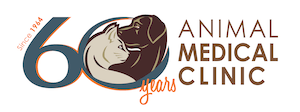Keep your kitty safe with these helpful tips!
It is no surprise that dogs and cats are, by far, the most common pets in U.S. households today. In fact, cats outnumber dogs by more than 10 million, making them the most populous pet. Those of us with feline family members understand.
While dogs are more indiscriminate with their eating habits and account for a large percentage of calls to Pet Poison Helpline, a 24/7 animal poison control call center, cats still comprise a significant number of calls.
The top five most common cat toxins include:
- Human or veterinary drugs
- Poisonous plants
- Insecticides
- Household cleaners
- Other poisons, such as glow sticks and liquid potpourri
Human and veterinary medications – Approximately 40% of feline cases at Pet Poison Helpline involve cats inappropriately ingesting human or veterinary drugs. Cats have difficulty metabolizing certain drugs due to their unique liver metabolism. This is why some drugs that are safe for dogs or people can be deadly for cats. Common medications such as human non-steroidal anti-inflammatories (NSAIDs) are some of the most deadly to cats. When ingested, they can result in kidney failure and gastrointestinal ulcers. Likewise, one Tylenol (e.g., acetaminophen) tablet can be fatal to a cat. Untreated, it can cause severe anemia (low red blood cell count), difficulty breathing, a swollen face, liver failure and death. Cats also seem to like the taste of certain antidepressants (e.g., Effexor), which may contain an attractive smell or flavor in the coating. Following any accidental medication ingestion or overdose, immediate veterinary consultation is Imperative.
Plants – Poisonous plants are the second most common toxin that cats get into and represent approximately 14% of feline-related calls to Pet Poison Helpline. True lilies (Lilium and Hemerocallis spp.), including the Tiger, Day, Asiatic, Easter, Oriental, and Japanese Show lilies, are among the deadliest, as ingestion can cause sudden kidney failure. Because these flowers are fragrant, inexpensive and long-lasting, florists often include them in bouquets. Small ingestions of 1-3 petals or leaves, the pollen, or even the water in the vase can result in irreversible kidney failure. Immediate veterinary care is imperative for a favorable outcome. Despite their name, other plants such as the Peace and Calla lily are not true lilies and do not cause kidney failure. Instead, these plants contain insoluble oxalate crystals that can cause minor symptoms, such as irritation in the mouth, tongue, throat and esophagus. Visit www.noliliesforkitties.com to view photos of harmful lilies and learn about safer plant options.
Insecticides – Insecticides comprise approximately 9% of feline-related cases at Pet Poison Helpline. Exposure to household insecticides can occur when a cat walks through an area that was treated with lawn and garden products, sprays, powders, or granules. Thankfully, most of these exposures do not result in severe clinical signs. A common scenario that can easily result in severe signs or death occurs when pet owners accidentally apply topical canine flea and tick medication to a cat. Dog specific insecticides containing pyrethrins or pyrethroids are highly toxic to cats. Severe drooling, tremors, and life-threatening seizures can occur. Always read labels carefully before using any kind of insecticide and ask your veterinarian about appropriate topical flea and tick medications for your cat. Also, be aware that some “natural” or “holistic” flea/tick medications can be very dangerous to cats.
Household Cleaners – Exposure to household cleaners account for 6% of feline-related calls to Pet Poison Helpline. Many cat owners don’t realize that some common household cleaners like kitchen and bath surface cleaners, carpet cleaners, toilet bowl cleaners, and even laundry detergents can be toxic to cats. Among the most dangerous are strong/heavy-duty cleaners such as oven cleaners, rust/lime removers, gun bluing agents, and toilet bowl cleaners. Symptoms can include profuse drooling, difficulty breathing, vomiting, and even organ damage. After cleaning your home, make sure all excess liquid or residue is wiped up or eliminated as soon as possible. Only allow your cat back into the cleaned areas after the products have completely dried. When storing cleaning products, keep them out of your cat’s reach.
Other Poisons – The remainder of feline-related calls to Pet Poison Helpline involve less obvious poisons, such as glow sticks and liquid potpourri. Glow sticks and glow jewelry contain a very bitter tasting liquid called dibutyl phthalate. While rarely deadly, just one bite into glow sticks can cause your cat to drool profusely. A much more harmful product is liquid potpourri— just a few licks can result in severe chemical burns in the mouth. Additional signs which may occur include pawing at the mouth, difficulty breathing, inappetence, vomiting, retching, weakness, fever, difficulty breathing, tremors, and occasionally, more severe organ damage.
Keep your four-legged felines safe by protecting them from these common feline toxins. If you think your pet may have ingested something harmful, act immediately. Contact your veterinarian or Pet Poison Helpline at 800-213- 6680.
Pet Poison Helpline, an animal poison control center based out of Minneapolis, is available 24 hours a day, seven days a week for pet owners and veterinary professionals that require assistance treating a potentially poisoned pet. The staff provides treatment advice for poisoning cases of all species, including dogs, cats, birds, small mammals, large animals and exotic species. As the most cost-effective option for animal poison control care, Pet Poison Helpline’s per incident fee includes follow-up consultations for the duration of the treatment time. Pet Poison Helpline is available in North America by calling 800-213-6680. Additional information can be found online at www.petpoisonhelpline.com.



